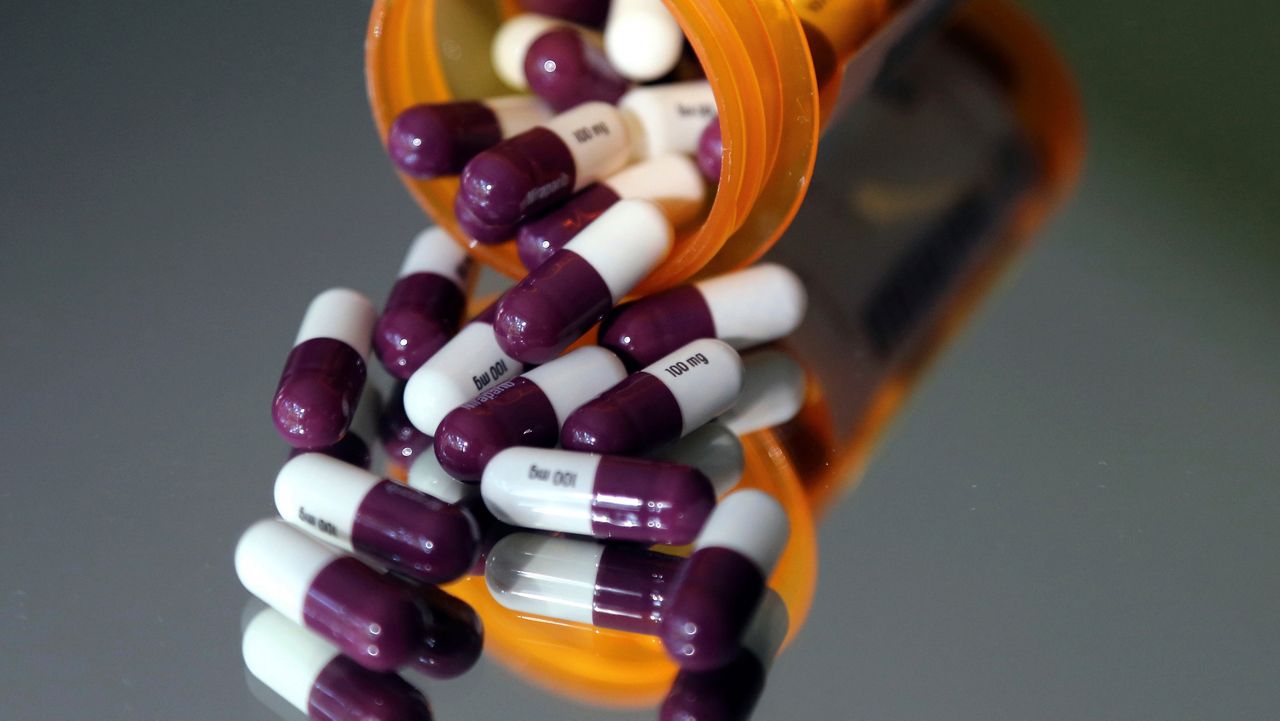Senate Democrats announced Tuesday that they reached an agreement on lowering prescription drug costs, putting a major party campaign promise back into President Joe Biden's Build Back Better bill, the $1.75 trillion social spending and climate change measure.
"I'm pleased to announce that an agreement has been reached to lower prescription drug prices for seniors and families in the Build Back Better legislation," Majority Leader Chuck Schumer, D-N.Y., said at a press conference Tuesday afternoon.
"Fixing prescription drug pricing has consistently been a top issue for Americans year after year, including the vast majority of both Democrats and Republicans who want to see a change because they simply cannot afford their medications," he said. "What a painstaking position to be in, it's horrible."
"Today we've taken a massive step forward in helping alleviate that problem," Schumer said. "By empowering Medicare to directly negotiate prices in Part B and Part D, this deal will directly reduce out-of-pocket drug spending for millions of patients every time they visit the pharmacy or doctor."
Schumer said the agreement will cap out-of-pocket spending at $2,000 annually and will "reform the entire industry to stop price gouging" to ensure that the country's system benefits patients rather than corporations. It will also prevent pharmaceutical companies from raising prices on drugs faster than the rate of inflation.
The New York Democrat pledged that the price of insulin, an essential medication in diabetes treatment, "will go down from $600" per dose "to $35."
"It's not everything we all wanted," Schumer acknowledged. "Many of us would have wanted to go much further, but it's a big step in helping the American people deal with the price of drugs."
The agreement was reached after coming to an accord with Arizona Sen. Kyrsten Sinema, a key moderate holdout. Prescription drug pricing was one of the last issues to resolve on Biden's bill.
"The Senator welcomes a new agreement on a historic, transformative Medicare drug negotiation plan that will reduce out-of-pocket costs for seniors – ensuring drug prices cannot rise faster than inflation – save taxpayer dollars, and protect innovation to ensure Arizonans and Americans continue to have access to life-saving medications, and new cures and therapeutics," a spokesperson for her office wrote in a statement.
In thanking the lawmakers involved, Schumer said that "Sen. Sinema has told me she supports this agreement, so I think we're there."
"I’ve been working closely with my colleagues on prescription drug reform," Sinema's fellow Arizona Sen. Mark Kelly wrote on Twitter. "We’ve now reached an agreement that will drive down prices and lower out-of-pocket costs for seniors. This will be a big win for Arizona seniors and I’ll keep working to get it over the finish line."
Leader Schumer said that he is aiming to bring the Build Back Better bill to the Senate floor the week of Nov. 15.
The news comes as Democrats are attempting to get both pieces of of President Biden's economic agenda – the BBB bill and the $1 trillion Senate-passed bipartisan infrastructure bill – over the finish line.
Also Tuesday, President Biden, speaking at a press conference at the United Nations Climate Change summit in Glasgow, Scotland, was optimistic about the other Democratic holdout in the caucus, moderate West Virginia Sen. Joe Manchin, supporting his Build Back Better plan.
"He will vote for this," Biden said of Manchin, one day after the West Virginia lawmaker said at a press conference that he "will not support the reconciliation bill until we know its impact on the debt and the economy."
Manchin emphasized Monday he has worked hard on a "fiscally responsible" reconcilation bill, saying he won't support a bill "without greater clarity" on its impact on inflation.
"To be clear, I will not support the reconciliation legislation without knowing how the bill would impact our debt and our economy and our country," Manchin said. "We won't know that until we work through the text."
"I'm open to supporting a final bill that helps move our country forward," Manchin added. "But I'm equally open to voting against a bill that hurts our country."
"I'm not going to talk about the specifics of my conversations" with Manchin, Biden said, but added: "He will vote for ... in this proposal what he has anticipated and that is looking at the fine print and the detail of what comes out of the house in terms of the actual legislative initiative. I believe that Joe will be there."
The bill needs the support of all 50 Democrats in the Senate to pass, making Manchin's support crucial.
"With regard to the issue of whether or not he thinks that he's worried about this being inflationary or negative impact on the economy, I think that I made it clear to Joe and will continue to," Biden continued. "Seventeen Nobel laureates on economics said it's going to lower inflation and raise wages and increase competition and create two million jobs in a year, etc."
"I understand that Joe is looking for the precise detail to make sure nothing got slipped in in terms of the way in which the legislation got written that is different than he acknowledged he would agree to," the president added. "But I think we’ll get this done."



